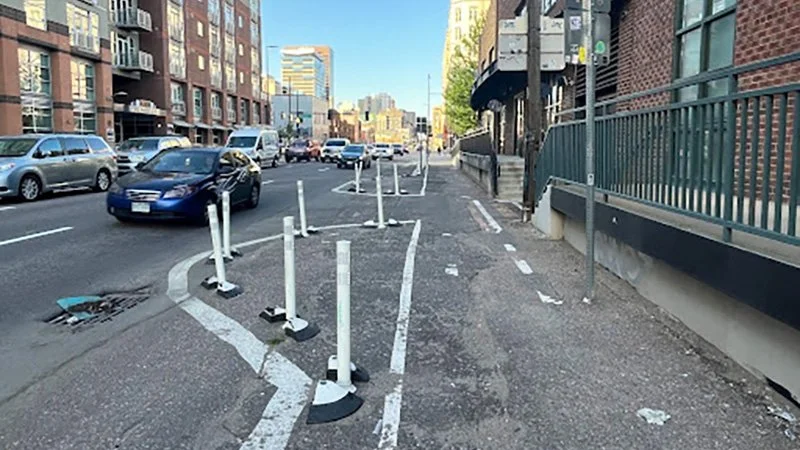Attendees of last week’s National Housing Supply Summit hoped it would provide insights for how Washington can tackle America’s housing crisis. But expecting Washington to fix problems it helped create isn’t optimism; it’s a paradox.
Read MoreOne of the most powerful things you can do as a strong citizen is to participate in public comment and share appreciation for the things you love about your city. Here’s why.
Read MoreTo create change, you need community engagement. Unfortunately, many cities have complicated systems for engagement that take a lot of time and effort to work with. Here's how one community in West Virginia is cutting through that red tape.
Read MoreConducting a walking audit is an quick, easy and free step that anyone can take to start improving their place. In this article, trained architect and urban designer Edward Erfurt demonstrates how to do so, using a recently completed sidewalk project in his community as an example.
Read MoreYou’ve just completed a Crash Analysis Studio and you have a report in hand. Or you found the "Beyond Blame" report compelling and you want to share it with your community. Now what?
Read MoreCollaboration (or community input) is discussed at great length within the urban planning profession, but it’s often lost in actual practice.
Read MoreThe Strong Towns Crash Analysis Studio is one of the toughest projects I’ve ever worked on. Analyzing crashes that ruined people’s lives is heartbreaking, especially when knowing that quick and easy responses could’ve prevented them. But it’s worth it to make those streets safer, to save lives and to shift the national conversation around crashes to be more humane and effective.
Read MoreReforming the administration of a city's building or zoning code is just as important as reforming the code itself. Fortunately, shifting this approach is within the discretion of city staff, so they can turn an aggravating, time-consuming process into one that better serves everyone's needs.
Read MoreWhen analyzing car crashes and identifying ways to prevent them, local experts — residents who are familiar with the crash sites — can often identify issues and solutions that technical experts miss. Here's how technical experts and elected officials can tap into that local expertise.
Read MoreIn many cities, officials recognize that it's better to stop a problem from occurring than try to control it after the fact. When faced with a recurring problem (like riotous parties), they pass ordinances that target its root causes. Why not do the same with street safety?
Read MoreNorth America's built environment makes it too dangerous for most children to walk to school. Edward Erfurt, Strong Towns' director of community action, knows that from experience. Here's how he's planning to make the street outside his son's school safer.
Read MoreRegulatory reform doesn’t always mean replacing or changing zoning codes. Great designers are experts at working within existing codes to increase housing options, and this method is often more attainable and scalable than actually changing the code. Here’s one such example of using existing code to create incremental housing.
Read MoreNice, California, doesn’t have nice streets. But it could, if city planners started thinking about road infrastructure in a way that prioritizes safety and walkability over asphalt. Here are a couple of redesign options, inspired by a Crash Analysis Studio held in the city.
Read MoreWhen discussing redevelopment, street design isn’t what most people think of. Since North American streets are often built to completion, this kind of incremental approach seems alien. But it’s exactly what cities need to improve their economic, social and environmental conditions.
Read MoreHitsville U.S.A. is known for producing artists, recordings and a distinctive Detroit sound, but it also represents an important element of a strong city: mixed-use development. If Detroit hadn’t let Berry Gordy turn the first floor of his home into a recording studio, Motown Records might not exist today.
Read MoreDo you have a favorite food truck? These micro businesses are often features of their communities, and they represent an important stage of incremental development. But strict zoning laws can put these businesses at risk. Hot Dog House FL learned this the hard way when parking mandates evicted them from their main operating location.
Read MoreConnecticut is trying to reform state and local zoning laws to allow diverse and affordable housing production. However, their efforts still rely on the suburban approach — accruing large amounts of debt in anticipation of future growth — so they may be doomed to failure.
Read MoreWould you wait a month to fix a leaking pipe that was damaging your kitchen cabinets? No? Then why do we wait so long to fix streets where people continuously die in car crashes?
Read MoreThere is nothing inspirational in calling the place you live as accessory to something else. It’s time we returned a sense of dignity to the smaller structures that people have called “home” for generations.
Read MoreThe unique planning and eclectic architecture of Savannah, GA, provide a PhD education on urban design—but there are also cautionary tales about development to be gleaned from this historic city.
Read More



















